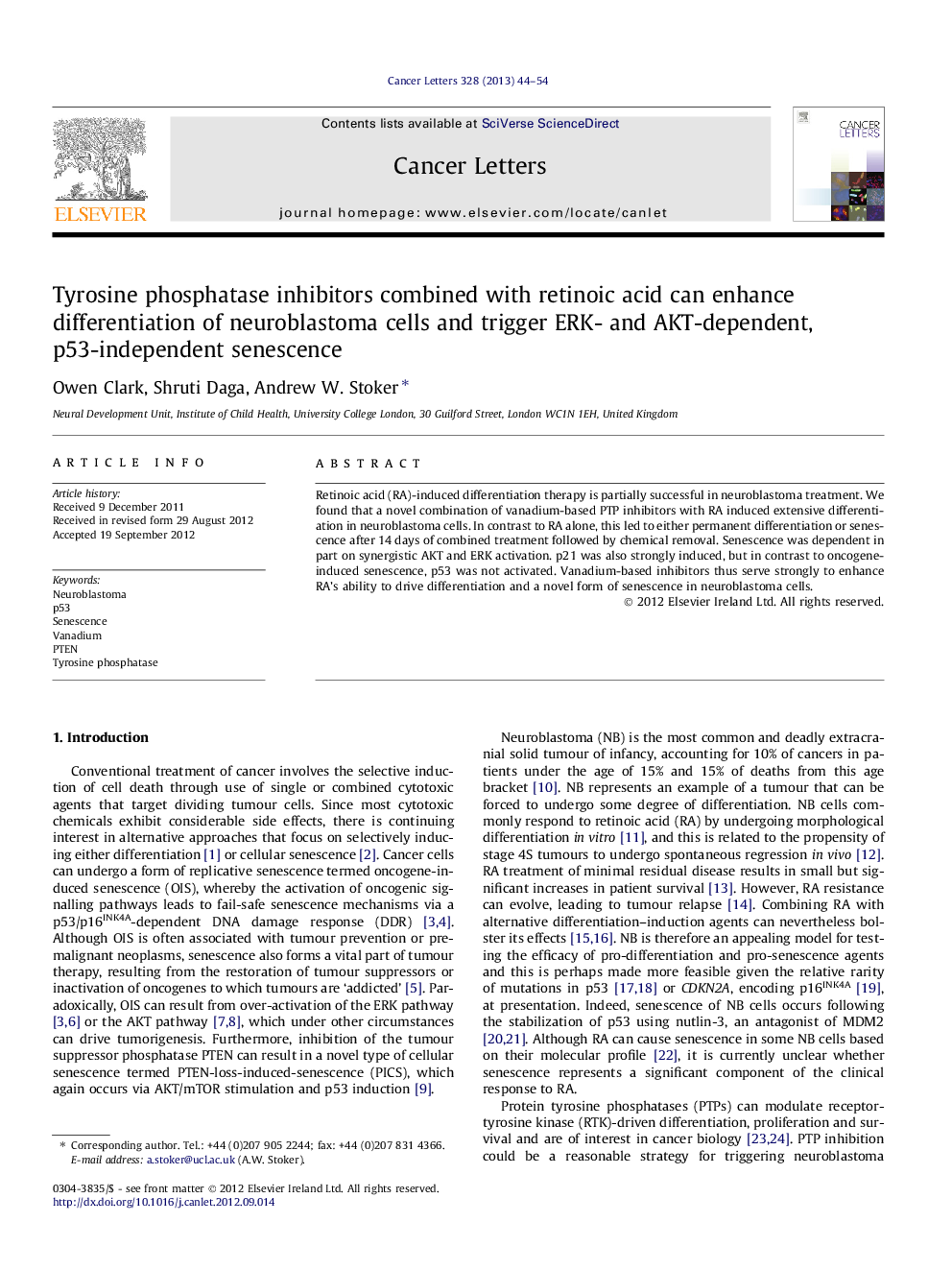| Article ID | Journal | Published Year | Pages | File Type |
|---|---|---|---|---|
| 2116320 | Cancer Letters | 2013 | 11 Pages |
Retinoic acid (RA)-induced differentiation therapy is partially successful in neuroblastoma treatment. We found that a novel combination of vanadium-based PTP inhibitors with RA induced extensive differentiation in neuroblastoma cells. In contrast to RA alone, this led to either permanent differentiation or senescence after 14 days of combined treatment followed by chemical removal. Senescence was dependent in part on synergistic AKT and ERK activation. p21 was also strongly induced, but in contrast to oncogene-induced senescence, p53 was not activated. Vanadium-based inhibitors thus serve strongly to enhance RA’s ability to drive differentiation and a novel form of senescence in neuroblastoma cells.
► Over 3–6 days, vanadium compounds enhance the ability of retinoic acid to induce temporary differentiation in neuroblastoma cells. ► Prolonged application of the vanadium/retinoic acid combination, instead induces senescence and more permanent differentiation. ► Combination treatment induces very strong activation of both AKT and ERK. This activation is required for the senescence response. ► PTEN inhibition by vanadium compounds is not at the root of the strong differentiation/senescence response. ► When inducing differentiation and senescence, the vanadium/RA combination triggers p21 activation, but does not need p53 activation.
